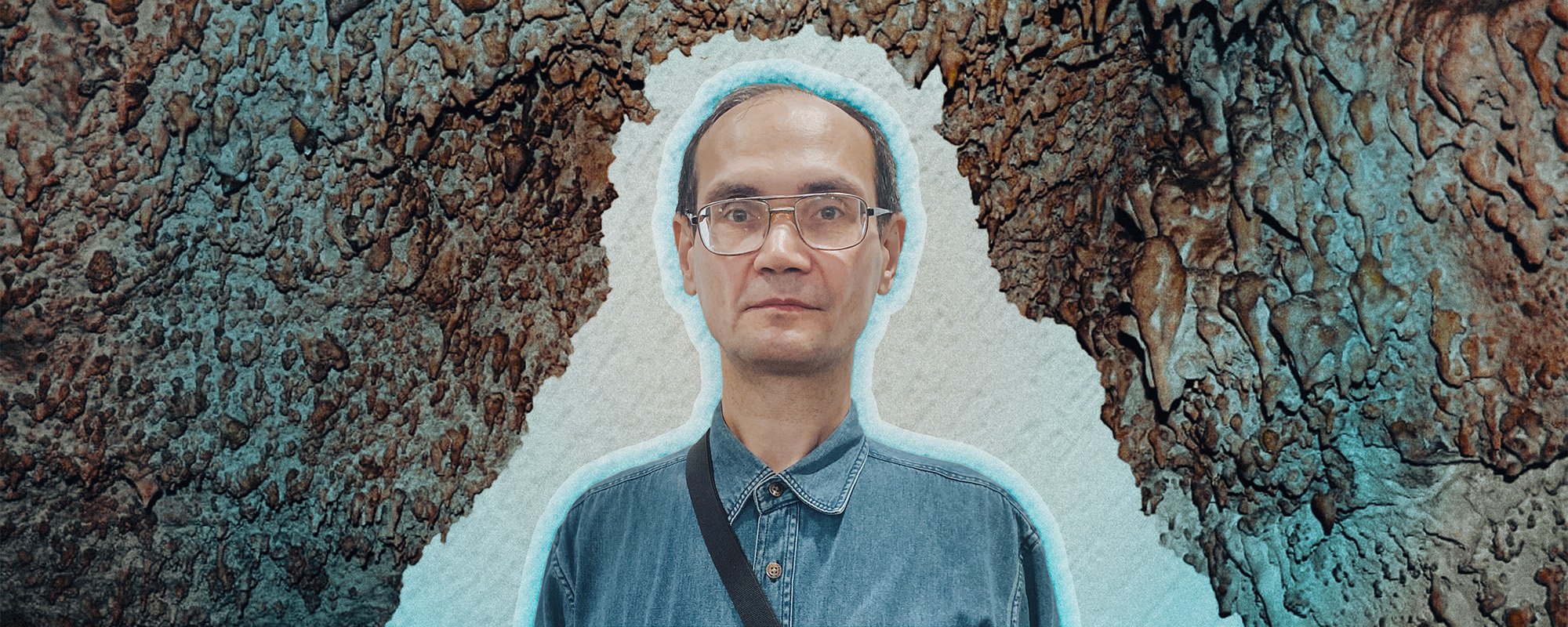A Christian, publicist and caver — these words describe Krasnoyarsk resident Igor Orlovsky. Two more have recently been added. The Kremlin’s authorities accused him of inciting terrorism and extremism, spreading «fakes» about the Russian army and «rehabilitating Nazism». The Nobel-winning Memorial Centre has recognized him as a political prisoner. Read more about the deeply religious man who received a three-year prison sentence and faces the prospect of a new term.
Igor Orlovsky is a creative man. More than 150,000 people have read hundreds of his articles, stories and drafts published on his page on Proza.ru — a popular Russian platform for publishing independent prose. Literary works, recipes and articles about caving, a hobby that Orlovsky has long been dedicated to, make up only a small part of his bibliography. The main focus in Igor’s life and creative pursuits is faith.
In his youth, his interests included occultism, East Asian philosophy and shamanic practices. In the process of searching for the meaning of life, Orlovsky found his way to Christianity. He lived like a monk—in seclusion, fasting and prayer. Still in his youth, in the company of several like-minded individuals, he founded an Orthodox monastic community, where friends lived according to the rules of monastic life.
Having decided to deepen his knowledge of theology, Orlovsky left Krasnoyarsk and enrolled at the Moscow Theological Seminary, where 30 applicants competed for each spot. However, after studying there for three semesters, Igor became disillusioned with the rigid teaching methods that left no room for profound theological exploration or thoughtful theological discussions. He left the seminary «following a particular incident» he prefers not to discuss in detail. Orlovsky then returned to his hometown.
«I didn’t intend to pursue a [priestly] career. I enrolled in the seminary to become a Christian; not just to bear the title of a Christian, but to truly be one — to live according to the Gospel, to follow Jesus Christ. That’s what Sergianism is all about — ordination only with the approval of the „authorities“, and moving from one place to another also only with the consent of the „authorities“, » Igor explains.
In his secular life, he continued to live as before, in prayerful vigil and seclusion. He allowed his sister, whose divorce had left her on the streets, to live in his apartment with her child. Igor, on the other hand, settled in a rented apartment and simultaneously, completely alone, built a hermit cabin 30 kilometres from the city, not far from a cave he loved to explore either alone or as part of caving groups — the «cave people», as they referred to themselves. He earned a living by working on the furnishing of residential spaces, specialising in tiles, mosaics, natural stone and drywall construction.
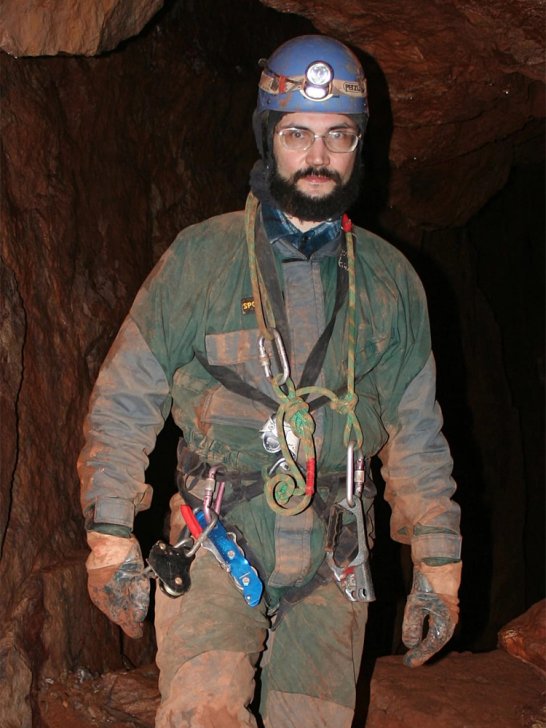
«Just recently, when Igor was still a free man, he decided to venture into a larger project, » his sister Elena Orlovskaya recounts. «Together with another person he had barely known, they took on a contract to work on the interior finishing of several townhouses at once. However, this acquaintance turned out to be a fraudster who pocketed the money provided by the client. As a result, there was nothing left to pay the workers. And Igor, for whom honesty was of utmost importance, pledged his apartment as collateral for the debt.»
«That’s already a different story»
The full-scale invasion of Ukraine was, in Orlovsky’s own words, a genuine shock. In the initial days, he couldn’t tear himself away from the news feed, continuously scrolling through videos of Christian elders who unanimously referred to Russia as an aggressor and social media profiles of Ukrainians caught in the midst of war.
«My anti-war views formed in early childhood. Starting from the first grade, we would makes posters like „Peace for the world!“ and „No war!“. Our teachers explained to us the terrible evil that war represents, » recalls Orlovsky. «That’s why it’s unacceptable for people to start fighting again.»
Unable to stay silent, he expressed his feelings about the situation in social media comments. As stated by the prosecution in the criminal case, one of his comments contained «a call for the destruction of Russian military personnel taking part in the special military operation in the territory of Ukraine, » and the other contained «a call for the physical liquidation of the acting president in order to stop his political activities.»
Within a few weeks, Igor received a notification about two administrative cases filed against him under Article 20.3.3 of the Code of Administrative Offences (discrediting the Armed Forces of the Russian Federation) for these comments. A couple of months later, in the summer of 2022, courts fined him 30 thousand rubles (US$ 320) for each statement.
Early morning of January 10, 2023, the apartment where Orlovsky lived was raided by a task force: police and FSB officers, accompanied by an investigator from the second department for investigating especially important cases of the Main Investigative Directorate of the Investigative Committee and five masked men. After conducting a search, during which the visitors did not seize anything except a copy of the Constitution, the latest issue of «Rossiyskaya Gazeta» newspaper and a note with a prayer for Ukraine and Russia, Igor was charged with public calls for extremism and terrorism (Part 2 of Article 205.2 and Part 2 of Article 280 of the Criminal Code of the Russian Federation). The grounds for that were the same two comments on social media.
The case against Orlovsky was largely based on the linguistic examinations carried out by Siberian Federal University teachers Natalia Zhbankova and Olga Felde, as well as the testimony of people who acted as witnesses in many similar cases. While reviewing the materials, Orlovsky and his lawyers found out that his posts on social media were used as the basis for yet another criminal proceeding — «rehabilitation of Nazism» (Part 2 of Article 354.1 of the Criminal Code). The reason for initiating this case was Orlovsky’s comment on Russian VKontakte social media platform, where, comparing the policies of Hitler and Stalin before the start of World War II and relying on the works of various historical publicists Dmitry named both authoritarians as aggressors.
These charges were based on an examination compiled by three «specialists»: Alla Kipchatova, Anna Tolmacheva and Mikhail Shibaev. Anna Tolmacheva, a teacher at Krasnoyarsk State Pedagogical University, who subsequently spoke at the trial as an expert, relied in her conclusion on the verdict of the Nuremberg Tribunal, which accused the leadership of Nazi Germany of unleashing World War II. It relied as well on the «official position of the Russian Federation» expressed in documents of the Military University of the Ministry of Defense.
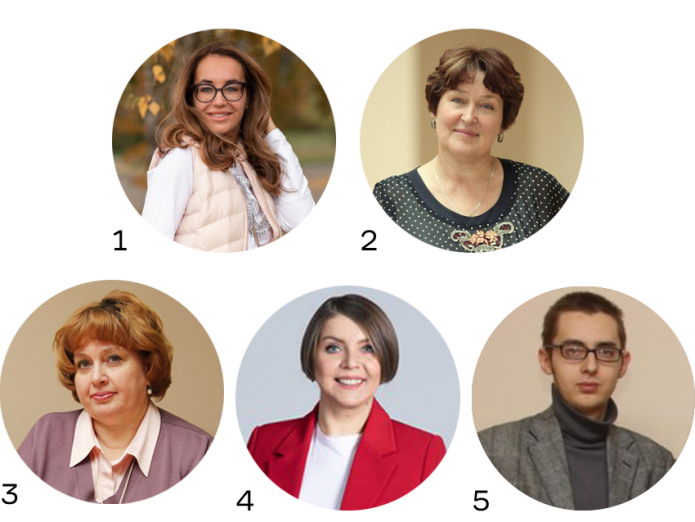
Tolmacheva insisted that Stalin could not be called an aggressor, since all Soviet interventions in neighbouring countries were legal and regulated by relevant international treaties. The expert admitted that half of Poland and some Baltic countries were defined as the sphere of influence of the Soviet Union in the secret protocols to the Non-Aggression Pact concluded between the USSR and Nazi Germany, the Molotov-Ribbentrop Pact. However, she flatly refused to consider this as the USSR’s aggression against its neighbours.
«On September 15 [1939], the Polish government left the country and after that its statehood ceased to exist. On September 17, Red Army troops crossed the border of a no longer existing state in order to occupy those territories that were falling into the zone of interests [of the USSR], » Tolmacheva said during court interrogation, responding to a question from Orlovsky’s defence attorney, Dmitry Levichev.
According to the expert, the invasion of Soviet troops into Latvia and Estonia in 1940 cannot be called an occupation either, since the Red Army did not cross the borders of independent states, but only occupied the territory of the Soviet socialist republics, which had just been proclaimed as such by local political forces.
As for Finland, according to Tolmacheva, «the fact that Soviet troops crossed the border with Finland is not recognized in scientific literature, » whereas the Soviet-Finnish war of 1939–1940 together with the occupation of the Karelian Isthmus by the Red Army was a natural result of the so called Mainila incident, when a shooting started at the border by persons who still remain unknown.
The question of attorney Levichev on whether it was true that Poland, Lithuania, Latvia and Estonia have been in one way or another occupied by Soviet troops right after the conclusion of the Molotov-Ribbentrop Pact greatly outraged Tolmacheva. She stated that Levichev «mixes apples with oranges, » since «that’s another story, » and all these territories were incorporated not as a result of an agreement with Germany, but as a result of other international treaties.
The charges against Orlovsky were soon supplemented by an article on «fakes» about the Russian army (Part 2 of Article 207.3 of the Criminal Code). This time, law enforcement officers did not like the comments in which Orlovsky spoke critically about missile attacks on Mariupol: «Why did the Russian occupiers attack Ukraine? Why did they wipe Mariupol off the face of the earth? Why are the troops killing civilians? Why are they humiliating civilians?» Moreover, he quoted the official statement of the then Ukrainian Ombudsman Lyudmila Denisova about the rape of women and minors in Bucha (these statements were later disavowed and Denisova herself was fired from her position — OVD-Info).
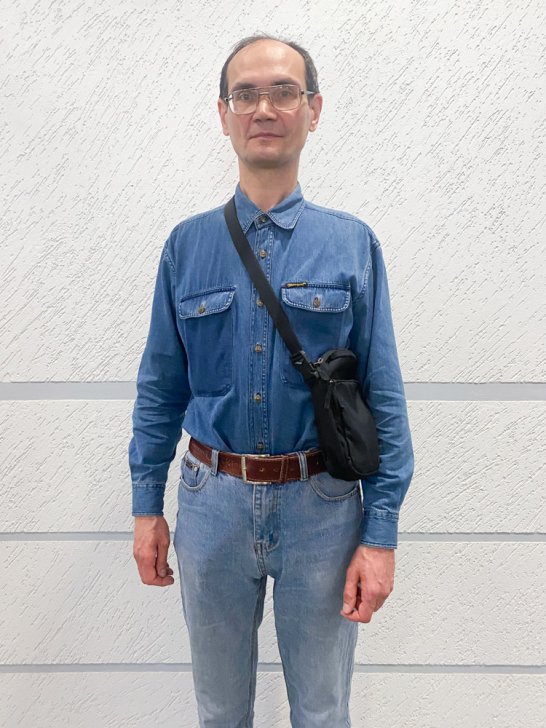
«There were no complaints from users, no denunciations, nothing like that. But the case officer who discovered a „gold mine“ in the form of Mr Orlovsky’s social media page with enough comments to bring as many as four criminal charges, that is, two cases for each of the two agencies — the FSB and the Investigative Committee — expressly told us at the court’s cross examination that he had discovered them „during the monitoring of the VKontakte social network.“ At this point, in case someone has not yet understood, I recommend not to post or comment on anything at all on that site, » advises attorney Maria Terekhova, who collaborates with the OVD-Info project.
«My place is among the suffering»
Orlovsky honestly admitted writing the comments. However, he adamantly refused to plead guilty and insisted that his moral imperatives did not allow him to incriminate himself or renounce his political position, which was completely in line with his ethical stance.
Igor stayed in his rented apartment and remained under recognizance not to leave until March 2023, when, after five court hearings that took place within one week, the 1st District Military Court began to pass a sentence. The state prosecution demanded that Orlovsky be imprisoned for 6.5 years, citing the social danger of the «criminal acts» he committed.
The attorneys strongly advised Igor to pack a bag with clothes, medicines and food for the initial period of possible detention and take it to the last court hearing. However, Dmitry refused, trusting in God and common sense.
«Actually when we learned that the case of inciting extremism and terrorism was investigated by the Federal Security Service, we were quite surprised and horrified. Moreover, it fell under the jurisdiction of (surprise-surprise) a military court and even a panel of three judges. The said incitement was discovered in comments of our harmless and self-immersed confidante on the Russian social network VKontakte, » admits Maria Terekhova. «The thing is that the District Military Court considers cases in several Russian constituencies, travelling between them for short periods of time. They go straight from the plane to the court session with their bags, then from the court session straight to a temporary accommodation centre. This directly affects the quality of their work: if they want to sleep and leave earlier, they will deny the petition; if they are obliged by law to give time to prepare the petition, they will give 15 minutes; if it is necessary to pass a verdict in the days allocated for the business trip, they will pass it. Everything is clear if you forget that human freedom is at stake.»
The judges sentenced Igor to three years’ imprisonment in a general regime penal colony with a restriction on Internet publications for two years after his release. Then the guards demanded Orlovsky to take everything out of his pockets, handcuffed him and took him to pre-trial detention centre No. 1 in Krasnoyarsk Kraj, a major constituency in Siberia. The only two items found in his pockets were a Bible and an Orthodox prayer book.
Igor’s detention came as a shock to everyone: to himself, to his relatives and even to his lawyers, who had witnessed a lot in Russian courts. As convicted, Orlovsky lost the ability to work and make his loan payments, his apartment was foreclosed by the bank and Orlovsky’s sister together with her child lost their home again.
In May 2023, the «Support for Political Prisoners. Memorial» human rights project recognised Orlovsky as a political prisoner and his prosecution for anti-war comments as politically motivated and illegal. The state, through the Federal Financial Monitoring Service, has placed Igor on the list of terrorists and extremists.
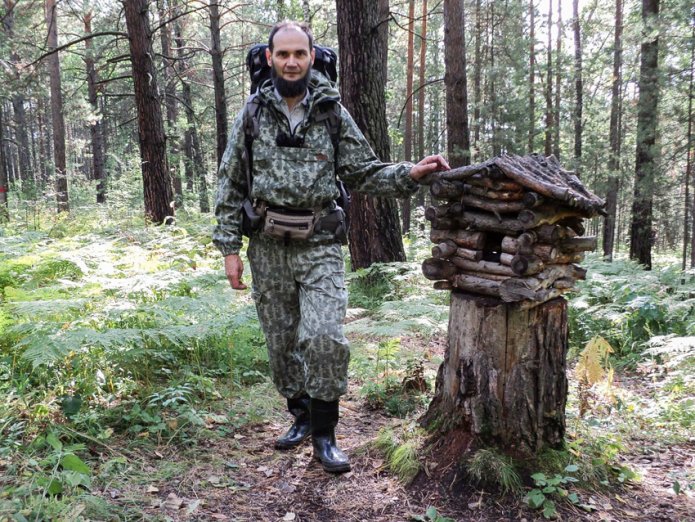
Orlovsky is still in the pre-trial detention centre waiting for the end of the new trial on the cases for «rehabilitation of Nazism» and «fakes» about the Russian army. They are being considered in the Krasnoyarsk Regional Court and are at the stage of presentation of defence evidence. The maximum sentence for the first offence is ten years and for the second one — five years.
Igor, who his friends and family describe as «humble», accepts his misfortunes with Christian stoicism. According to his lawyers, he has maintained a positive attitude since the first days of his detention, finding support in religion. He keeps away from despondency, which in the Orthodox tradition is considered among the gravest of sins, prays to God for peace and preaches Salvation to his fellow inmates. He also tells them about the benefits of the Vadim Zeland system of nutrition. Igor, a long-time practitioner of raw food diet, is now forced to eat «meagre» food in accordance with the dietary regime established in the Russian penitentiary system.
He also thinks about his ancestors. His great-grandfather, a priest, was exiled to a special settlement by the Bolsheviks in 1921, ruined his health there and died on the way home after his release. Another great-grandfather of his, a doctor, was repressed in 1938 and never returned from the camps alive. His maternal great-grandfathers were kulaks dispossessed in the early 1930s.
«I consider myself, firstly, a citizen of the Kingdom of Heaven and only then a citizen of the Russian Federation. The question is what side Jesus Christ would be on during this war? He would be on the side of those suffering on both sides of the front. So, my place is among the suffering. Christianity and war are incompatible. God-Man Jesus Christ would never take up a sword and kill anyone, » summarises Igor Orlovsky.
The political prisoner states that, in retrospect, the path of making angry comments that he chose was wrong because it is alien to the Christian soul. Orlovsky believes that he should have concentrated on prayers and asked God for Vladimir Putin’s sobering judgement and a quick end to the fratricidal massacre. After all, this is what the Saviour demands of people with the commandment «Blessed are the peacemakers, for they shall be called the children of God» (this quote from the Sermon on the Mount is still posted as Igor’s status on his VKontakte page — OVD-Info).
The persecution of peacemakers by state power, according to Orlovsky, is the epitome of the eternal plot of the Sacred History: the slaughter of the infants in the vicinity of Bethlehem by the order of Herod the Great, king of Judea.
Fidel Agumava



